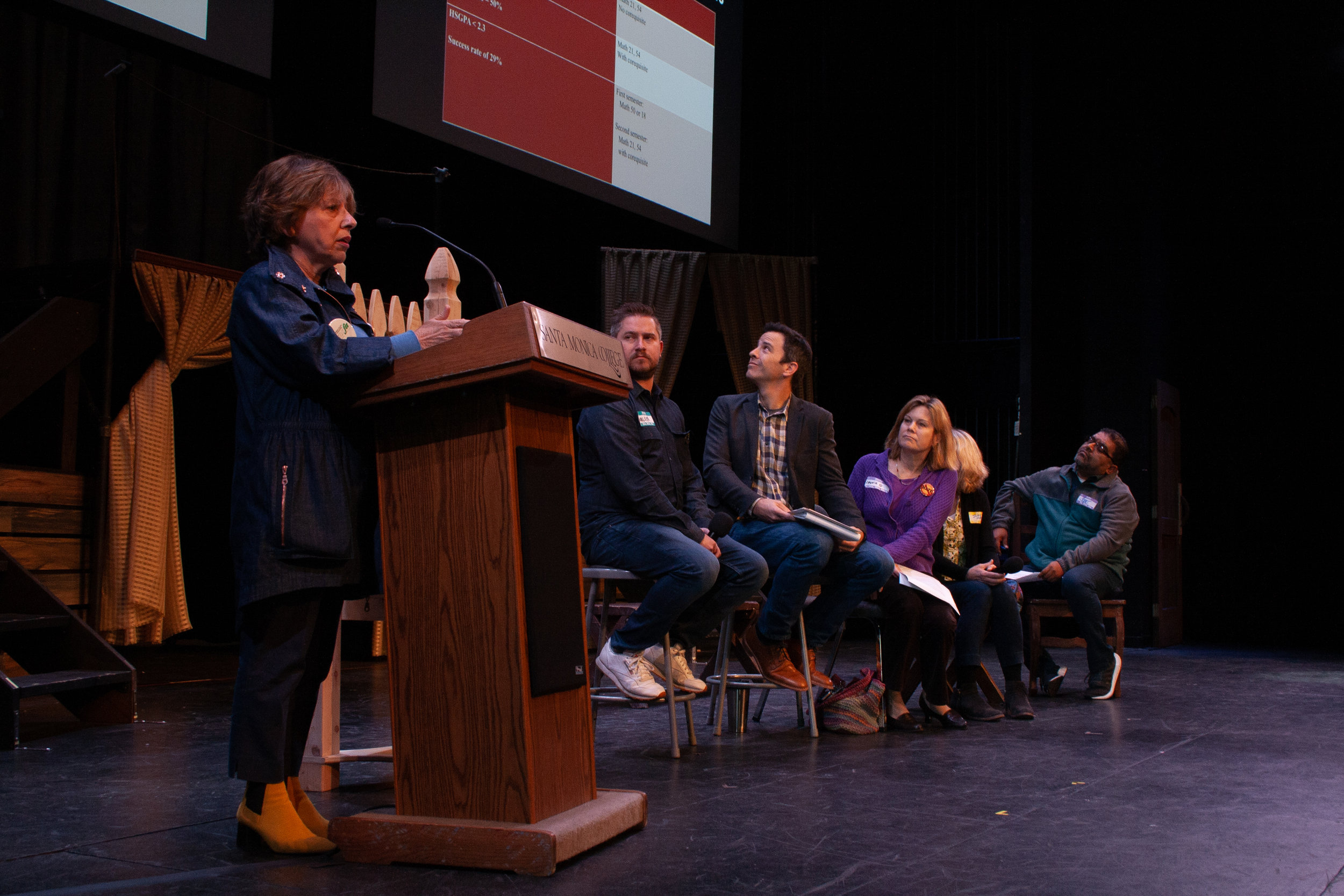SMC Faculty And Staff Prepare For New Law Eliminating Entrance Exams
Santa Monica College (SMC) held its Professional Development Day for the Spring semester on Thursday, March 14. Faculty and staff were given the opportunity to attend a workshop which highlighted the dramatic changes that will take place at SMC following the implementation of AB 705. Starting this summer, SMC will no longer offer placement exams. Instead the college will rely on students’ high school grade-point average (GPA), coursework, and grades.
A panel comprised of representatives from the Math, English, ESL, and Counseling departments gathered on the Main Stage in the Theatre Arts building. Led by Professor Brian Rodas, who teaches math at SMC, the panel went into detail about how and when AB 705 would be implemented.
AB 705, Rodas explained, is a bill signed into law by former Gov. Jerry Brown in 2017. The California Legislative Information website states the bill requires that students “enter and complete transfer-level coursework in English and mathematics within a one-year timeframe.” Furthermore, it also prohibits the use of placement exams for Math and English.
According to a study published by Columbia University’s Center for the Analysis of Postsecondary Readiness, many students who take assessment exams are unnecessarily placed into remedial Math and English courses, which in turn leads to students taking longer than the recommended two years to complete their requirements for an associate degree or to transfer.
The panel discussed how in addition to offering support classes for transfer-level coursework, SMC is also planning several initiatives to assist students, including the use of embedded tutors and counselors.
English professor Walker Griffy, who was one of the chief architects behind SMC’s plans to adhere to AB 705, explained that the English department stopped using placement exams last year. Griffy presented data which showed an increase in first-time college students successfully completing English 1 since then. According to data from the college, over two thousand students passed English 1 in the Fall 2018 semester compared to 1,365 in the Fall 2017 semester.
“In terms of redesigning our english classes, I feel very good about it,” Griffy said. “I think it’s the best thing for our students. I think it gives us the best chance to increase student success and close...equity gaps...So I’m excited about it.”
Mitra Moassessi, who is the chair of the Math Department, explained that math placement will be determined by the previously discussed measures and by what the students’ majors are. Business and STEM majors will be placed into different math classes than Liberal Arts majors.
“We have six transfer-level courses, so we have created support courses for all of them. And yes, we are hoping that it will work, but...we can’t predict what’s going to happen,” Moassessi said.
Jose Hernandez, who represented the Counseling Department, said that he understood many students are concerned about being able to succeed in math classes, but that he feels confident that the use of embedded counselors will prove to be successful.
“I feel like it’s our job and our role to figure out how we can support [students], keeping them here, and helping them persist,” Hernandez said.
While english and math placement tests will no longer be offered, the ESL department will still be allowed to use placement exams for ESL students.
Judith Marasco, who is the chair of the ESL Department, expressed some concern over AB 705. “I think for us...the only thing we’re really concerned with is if the placement test disappears.”
Although other community colleges have had success with other placement measures for ESL students, Marasco explained that the sheer number of international students, 900 according to Marasco, at SMC makes the process all the more difficult.
In spite of these reservations, Marasco and the rest of the committee appear to be in good spirits about these changes.
“I think that for the first time since I’ve been here,” Griffy said, “we have a center of engagement that’s happening...We’re having conversations that are really focused on the students’ success in the classroom.”
AB 705 has undoubtedly brought significant changes to SMC, and not everyone is happy about them.

